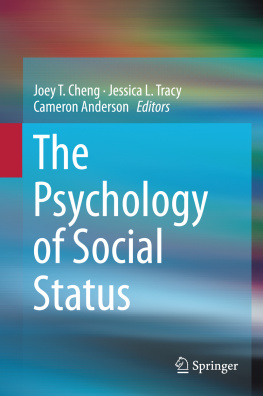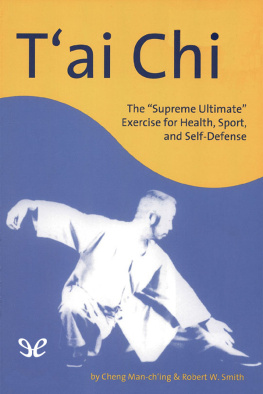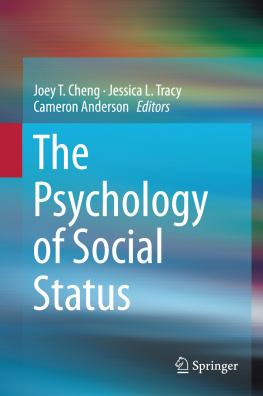1. Toward a Unified Science of Hierarchy: Dominance and Prestige are Two Fundamental Pathways to Human Social Rank
Although affiliative and cooperative interactions form the primary fabric of human social relationships, group living necessarily entails conflict over divergent goals and competition over scarce resources. The formation of social hierarchies, an organizational structure observed across many species in the animal kingdom and ubiquitous to human groups , presents a solution to these conflicts. Although the bases on which humans form hierarchies and allocate rank are diverse, hierarchies are fundamentally social structures in which high-ranking individuals reliably receive greater influence , deference, attention , and valued resources than low-ranking others (Homans , this volume).
Despite the fundamental importance of social hierarchies to human relationships, however, questions remain about the processes that allow individuals to attain rank and the factors that determine rank allocation. Although an extensive literature has documented a wide range of micro-level attributes and behaviors that influence rank attainment, these findings lack a coherent, unifying framework integrating the various data points into a comprehensive and theoretically supported understanding of rank differentiation. To address this disparity, we have adopted a parsimonious and empirically supported evolutionary model, the Dominance-Prestige Account (Cheng et al. ), which we believe can unify the diverse extant findings. This account proposes that differences in hierarchical rank within human social groups are the result of both: (a) coerced deference to dominant others who induce fear by virtue of their ability to inflict physical or psychological harm (i.e., Dominance) and (b) freely conferred deference to prestigious others who possess valued skills and abilities (i.e., Prestige).
This chapter provides a broad review of the extant research regarding rank allocation processes, by surveying findings from the major disciplines that have studied human rank dynamics empirically, including psychology, sociology, management science, and anthropology. We argue that the Dominance-Prestige Account can be fruitfully applied to organize these diverse empirical findingsincluding those that appear, at first glance, to be conflicting. The Dominance-Prestige Account not only allows for and predicts the diversity of results that have emerged in the prior literature, but also goes beyond many prior descriptive accounts to provide a deep theoretical explanation for the extant body of work.
It is important to note that, in contrast to many other chapters in this volume that focus more specifically on one particular dimension of social rank involving respect and admiration (often referred to as status ; e.g., Anderson and Kilduff ).
The present review is organized into three sections. First , we discuss the key tenets of the Dominance-Prestige Account, outlining the selection pressures theorized to favor the evolution of these two distinct forms of social rank inequalities in humans, and the psychological processes that underpin them. Second , we discuss findings from our own recent work that directly support this account, by demonstrating (a) the co-existing effectiveness of Dominance and Prestige in promoting social rank and (b) the distinction between Dominance and Prestige as separate rank-attainment processes, wherein each is underpinned by a distinct suite of personality profiles, emotional mechanisms, behavioral patterns, cognitions, neuroendocrine profiles, and fitness outcomes. Third , we summarize a number of predictions that the Dominance-Prestige Account entails regarding the relevance of a wide range of narrow, lower-order traits, and attributes to rank attainment, and examine the fit of these predictions to the prior empirical literature. Taken together, this substantial body of research converges to suggest that intimidation and respect co-exist as two fundamental yet distinct bases of rank differentiation in human societies.
The Dominance-Prestige Account of Social Rank Differentiation
The Dominance-Prestige Account (Henrich and Gil-White ), the Dominance-Prestige Account argues explicitly, on the basis of evolutionary logic, that both avenues persist in contemporary human groups, and produce patterns of behaviors and tactics that effectively promote influence over others, even when wielded within the same social group.
First, Dominance entails the induction of fear , through intimidation and coercion, to attain or maintain rank and influence , and is thought to be homologous with dominance hierarchical systems in nonhuman primates that result from agonistic contests (Chase et al. ). In contrast to prior models, however, the present account proposes that coercion and intimidation are not the only means to human social-rank attainment; rather, a secondary pathway, termed Prestige, is thought to co-exist and operate concurrently.
Prestige refers to influence that is willingly granted to individuals who are recognized and respected for their skills, success, or knowledge. Subordinates seek out the opinions and company of Prestigious individuals in efforts to imitate and learn their superior skills or knowledge. As a result, the Prestigious are conferred with influence and rank, which in their cases rests on freely conferred deference and genuine persuasion, rather than forced compliance. Prestige-based rank is thought to be unique to humans, because it relies on cultural learning, which is considered to be less developed in other animals (Boyd and Richerson ). Learning from the most skilled group members is a low-cost way of acquiring fitness-maximizing knowledge, so the emergence of cultural learning in early human evolutionary history likely generated selection pressures to preferentially identify, attend to, and copy knowledge from highly skilled or successful others. These selection pressures would favor a psychological machinery capable of differentiating and ranking individuals along the dimension of skill (and, thus, Prestige), such that the highest quality cultural models with the greatest expertise are elevated to the top of the hierarchy.
The assumption that earned respect represents a fundamental path to rank attainment in humans is consistent with the predominant view of rank attainment within social psychology, which assumes that hierarchical differences result from groups members rational and freely chosen decisions to confer rank upon those individuals who possess and offer the greatest skills and ability to contribute to the group (e.g., Anderson and Kilduff ).
The distinction between Dominance and Prestige parallels Krackles ().
However, unlike these prior descriptive taxonomies, the Dominance-Prestige Account was theoretically derived and provides an evolutionarily based explanation of why these widely observed patterns occur. The strong theoretical basis of this account allows for the formulation of precise yet broad predictions regarding the suites of traits, emotions , cognitions, and behaviors expected to propel and underpin these two avenues to rank. Furthermore, this account is unique, in that it incorporates both our species shared heritage with other primates who resolve conflicts through domination-subordination coordination, and our unique human nature as cultural beings who depend heavily on cultural learning (Henrich and Gil-White ). The accounts breadth also gives it the potential to unify prior theoretical efforts and to integrate the somewhat scattered extant literature on power, status , and leadership into a coherent account, by parsing these prior results into Dominance- or Prestige-based processes.













